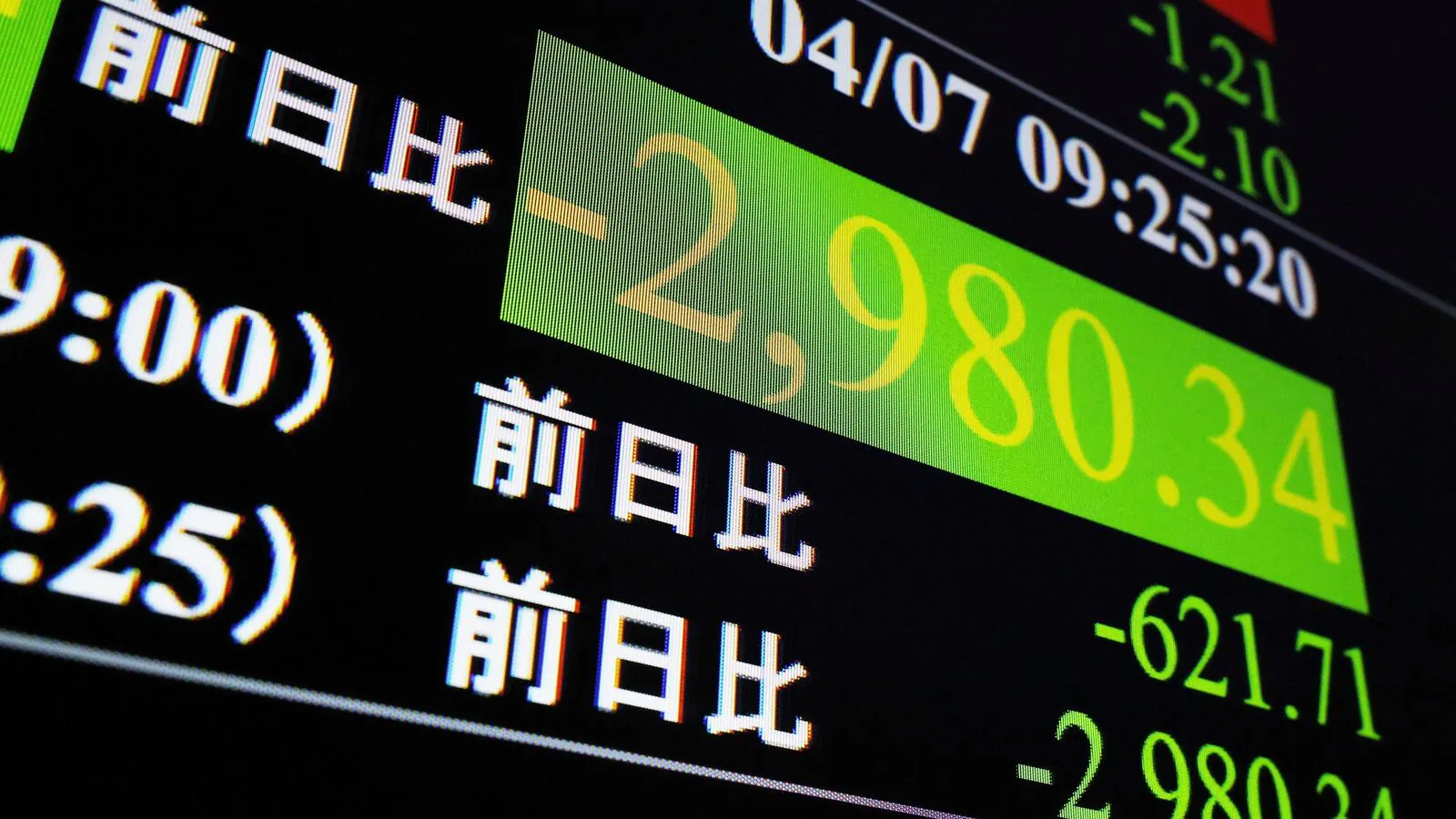Tokyo, April 7, 2025 — Asia’s financial markets plunged into turmoil on Monday in what analysts are already calling “Black Monday,” following a global wave of investor panic and deepening fears of a synchronized recession. Japan’s Nikkei 225 index led the collapse, plunging over 6.7% in a single trading session — its worst single-day drop since the COVID-19 pandemic in 2020.
The sharp selloff cascaded through regional markets, with China’s CSI 300 index down 5.4% and Singapore’s Straits Times Index shedding 4.1%. The wipeout erased billions in market value across Asian equities, triggered by a convergence of economic warnings, geopolitical tensions, and investor uncertainty surrounding U.S. monetary policy.
Catalysts Behind the Crash
Markets opened deep in the red after investors reacted to two major developments:
- JPMorgan’s dire recession forecast, warning that a U.S. economic downturn is now “unavoidable,” even if trade tariffs are lifted immediately.
- Disappointing manufacturing data from China and Japan, which showed industrial output shrinking faster than expected, signaling weakening demand across the region.
These fears were compounded by ongoing geopolitical strains, including renewed tensions in the South China Sea and worsening relations between Beijing and Washington.
“This is a full-blown risk-off event,” said Kaori Tanaka, senior strategist at Nomura. “There’s a loss of confidence in both fiscal policy response and global economic resilience. Investors are heading for the exits.”
Sector-Wide Bloodbath
In Japan, the hardest-hit sectors included:
- Tech stocks: Sony, SoftBank, and Tokyo Electron all plunged over 8%.
- Automotive: Toyota and Honda fell 6% and 7%, respectively, amid global demand concerns.
- Financials: Mitsubishi UFJ and Nomura Holdings lost over 5%.
China’s stock market saw similar carnage, especially in property and technology shares. Major companies such as Tencent and Alibaba saw losses exceeding 6%, while China Evergrande resumed its freefall amid default fears.
Singapore’s markets, more sensitive to global trade flows, suffered as banking and shipping stocks tanked.
Global Contagion Concerns
Analysts warn that the Asian market crash may be just the beginning, with U.S. and European futures sharply down ahead of their opening bells. Investors are now bracing for a possible domino effect across global markets unless governments and central banks act swiftly to restore confidence.
“We are witnessing the early stages of what could be a global market correction,” said Marcus Lee, economist at DBS Group. “The synchronized nature of the decline suggests underlying structural stress that no longer can be ignored.”
Central Banks Under Pressure
With panic spreading, eyes are now on the Federal Reserve, Bank of Japan, and People’s Bank of China, as market watchers anticipate coordinated monetary easing. However, skepticism remains about the effectiveness of such interventions amid prolonged inflationary concerns and weakened policy credibility.
The plunge has reignited memories of past market crashes, and while many hope the damage can be contained, there is growing consensus that more volatility lies ahead.




